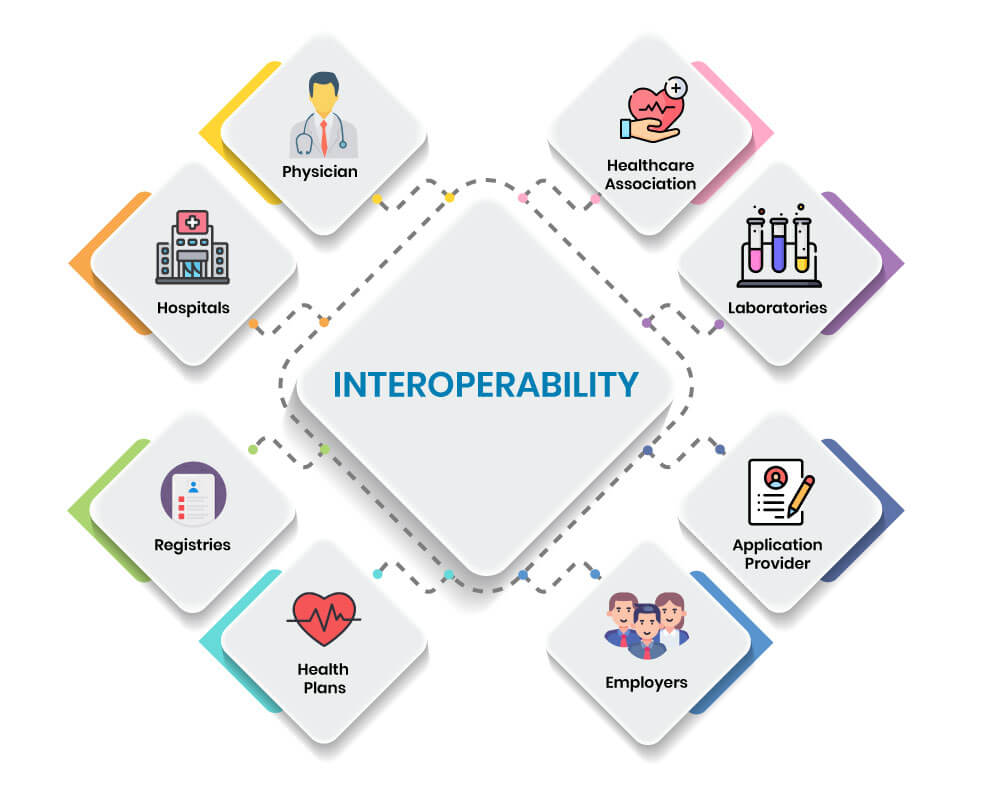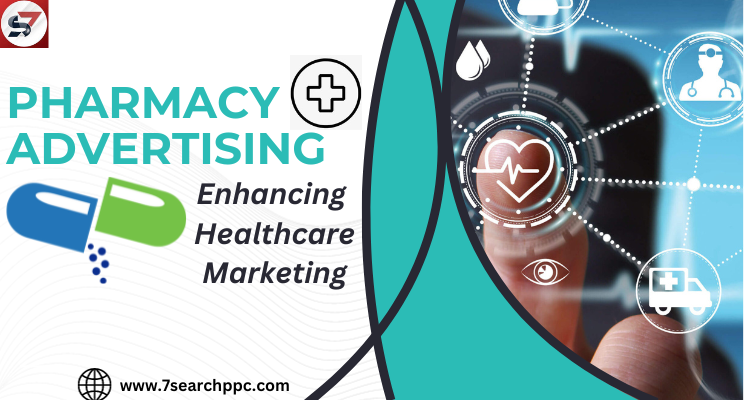 Automated Blog-to-Social Sharing – Publish Once. Appear Everywhere!
Automated Blog-to-Social Sharing – Publish Once. Appear Everywhere!
Healthcare Interoperability: What It Means for Patients and Providers
Written by Larisa Albanians » Updated on: June 17th, 2025

Imagine a world where your medical records follow you everywhere—effortlessly transferring from one healthcare provider to another, no matter the hospital or clinic. You walk into a new doctor’s office, and they immediately have access to your complete health history, medications, allergies, and lab results without needing a thick folder of documents or a series of phone calls to track them down.
Sounds futuristic? Not quite. This is the vision behind healthcare interoperability, and while it’s a concept brimming with potential, it remains elusive for many healthcare systems today.
But what exactly is healthcare interoperability, and why should both patients and providers be excited—and maybe a little concerned—about its future? In this blog, we'll unravel the mysteries of interoperability and why it has the power to revolutionize healthcare as we know it.
What Is Healthcare Interoperability?
At its core, healthcare interoperability is the ability of different health information systems, devices, and applications to access, exchange, and use patient data in a way that is secure, efficient, and meaningful.
Let’s break that down a little further. Interoperability means that your electronic health records (EHR) or electronic medical records (EMR) can “talk” to different healthcare systems, regardless of the software or platform. In an ideal world, these systems would work seamlessly together to share critical data—whether you’re seeing your family doctor, visiting a specialist, or in an emergency room far from home.
Explore details on EHR And EMR Integration For Your Healthcare Organization.
Think of interoperability as healthcare’s version of a universal translator. Without it, your medical data is trapped in silos, inaccessible to the very people who need it most: your healthcare providers.
Why Should Patients Care About Interoperability?
As a patient, you might not think too much about the systems that healthcare providers use behind the scenes. But here’s why you should.
1. Faster and More Accurate Care
Have you ever had to retake a test or explain your medical history repeatedly to different doctors? It’s frustrating—and potentially dangerous if important details are missed. With interoperability, your new doctor would already know about your past diagnoses, medications, and allergies, meaning faster, more accurate treatment.
In emergency situations, this instant access to your medical data could even be lifesaving. Imagine being unconscious after an accident—your complete health record could be retrieved by ER doctors instantly, allowing them to make informed decisions without any guesswork.
2. Fewer Errors and Redundancies
When different healthcare systems don’t communicate, things can slip through the cracks. Perhaps your specialist doesn't know about a new medication your primary doctor prescribed, or your allergist doesn't have access to recent lab results. These gaps in communication can lead to medication errors, redundant tests, and delays in care—all of which affect the quality of your treatment.
Interoperability ensures that all your healthcare providers are on the same page, eliminating errors and improving the efficiency of your care.
3. More Personalized Care
When healthcare providers have a complete picture of your health—thanks to seamless data sharing—they can deliver more personalized care. Instead of treating each appointment as an isolated event, your doctors can view trends in your health over time, make more accurate diagnoses, and craft treatment plans that are truly tailored to your unique needs.
Why Should Providers Care About Interoperability?
From a provider’s perspective, interoperability isn’t just about convenience—it’s about improving patient outcomes, increasing efficiency, and even cutting costs. Here’s how:
1. Streamlined Workflows
Without interoperability, providers spend a significant amount of time tracking down patient records, making phone calls, or requesting information from other systems. This administrative burden not only slows down care but also takes precious time away from actual patient interaction.
With fully interoperable systems, healthcare providers can access everything they need in one place, saving time and allowing them to focus on what really matters: caring for their patients.
2. Enhanced Decision-Making
In healthcare, having the right information at the right time is critical. When systems are interoperable, providers have a full view of a patient's health, including past treatments, test results, and any specialist consultations. This wealth of data enables better-informed decisions, reduces the risk of misdiagnosis, and leads to more successful outcomes.
3. Improved Collaboration
Many patients today see multiple healthcare providers across different practices or hospitals. Without interoperability, care coordination becomes fragmented. However, when systems are connected, providers can easily collaborate across disciplines. For example, a cardiologist can seamlessly share findings with a patient’s primary care physician or an orthopedic surgeon—leading to more holistic and coordinated care.
The Challenges of Healthcare Interoperability
If interoperability offers so many benefits, why isn’t it the norm already? The answer lies in the complexities of healthcare systems.
1. Technological Barriers
Not all healthcare systems are created equal, and many older systems lack the necessary infrastructure for interoperability. Different platforms use different data formats and making them communicate effectively requires sophisticated technology and ongoing investment.
2. Data Privacy and Security
Sharing sensitive health data across platforms raises important concerns about security. Ensuring that data is protected while it’s in transit—and making sure it’s accessed only by authorized personnel—is a significant challenge. Healthcare organizations must comply with strict regulations, like HIPAA in the U.S., to protect patient data.
3. Resistance to Change
Implementing interoperable systems often requires changing established workflows and investing in new technology, which can be met with resistance from both providers and organizations. For many healthcare facilities, the cost and effort required to upgrade their systems is a major barrier.
The Future of Healthcare Interoperability: A Glimmer of Hope?
Despite the challenges, there’s reason to be optimistic about the future of healthcare interoperability. Efforts like FHIR (Fast Healthcare Interoperability Resources) and TEFCA (Trusted Exchange Framework and Common Agreement) are helping to create universal standards that make data exchange easier and more secure.
Moreover, as patient demand for better care and transparency grows, healthcare providers and organizations are being pushed to adopt more interoperable systems. The future of healthcare may be one where your medical data follows you seamlessly, allowing for better care coordination, faster treatments, and a truly patient-centered experience.
Conclusion: Why Interoperability Matters for Everyone
Healthcare interoperability isn’t just a technical issue—it’s a patient care issue. For patients, it means quicker, more personalized treatments and fewer errors. For providers, it means improved efficiency, better decision-making, and enhanced collaboration across the healthcare ecosystem.
Though the road to complete interoperability may still have a few bumps, the destination is one where patients and providers can finally break free from the chaos of disconnected systems and step into a world of seamless, efficient, and truly integrated care.
The question isn’t if we’ll achieve full healthcare interoperability, but when—and when it happens, the possibilities for improving care will be endless.
Connect with us for Healthcare Integration Services.
Note: IndiBlogHub features both user-submitted and editorial content. We do not verify third-party contributions. Read our Disclaimer and Privacy Policyfor details.
Copyright © 2019-2025 IndiBlogHub.com. All rights reserved. Hosted on DigitalOcean for fast, reliable performance.













